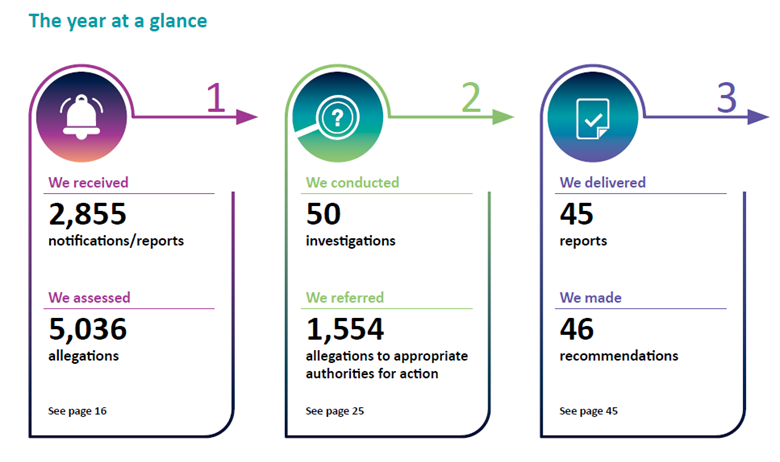Over 5000 allegations of corruption have been assessed by West Australia’s public sector anti-corruption agency in the last 12 months and more than 1,600 complaints potentially involving serious misconduct were acted upon.
The Corruption and Crime Commission Annual Report 2018-19, tabled in parliament last week, reveals that 5,036 allegations were assessed in the last year.
No further action was taken in relation to 3,429 of them, but the commission decided that 1,604 allegations potentially involving serious misconduct required further action and most (1,554) were referred to an appropriate authority for action.
The number of complaints compares to 5, 051 the previous year.
The CCC conducted 50 serious misconduct investigations and tabled reports on bribery and corruption, release of confidential information, fraudulent payments and misconduct risks.
The WA police force was the subject of the most complaints, with 2,825 made against it last year.
There were 566 complaints against local government, 409 against the health system and 147 against the education department.
The two most common types of allegations made against the public sector – excluding police – related to “use of position for benefit or detriment”, and unlawful use of a computer.
Corruption and Crime Commissioner John McKechnie said while the vast majority of WA’s public servants, elected officials, and people and companies who do business with them are ethical and good, a small number are not.
“For some, the working environment delivers temptation and opportunity to put their personal interest above the public interest. Many people also turn a blind eye to suspected corruption,” he says in the report.
With more than 40 per cent of the allegations coming from the public, the report says this is consistent with an upward trend over previous years.
In last year’s report, 36 per cent of allegations came from the public for the 2017-18, with 28 per cent for the 2016-2017 period.
“This may be due to increased public awareness of the work of the Commission resulting from a greater number of Commission reports produced and a continued website and social media presence,” the report says.

The report also notes that under new legislation passed by the Parliament of Western Australia last year, the Commission is now able to perform functions under the Criminal Property Confiscation Act 2000 in respect to investigating and litigating unexplained wealth and criminal benefits.
More than 200,000 people work in more than 250 state and local government agencies, universities and other public authorities in WA.





Leave a Reply